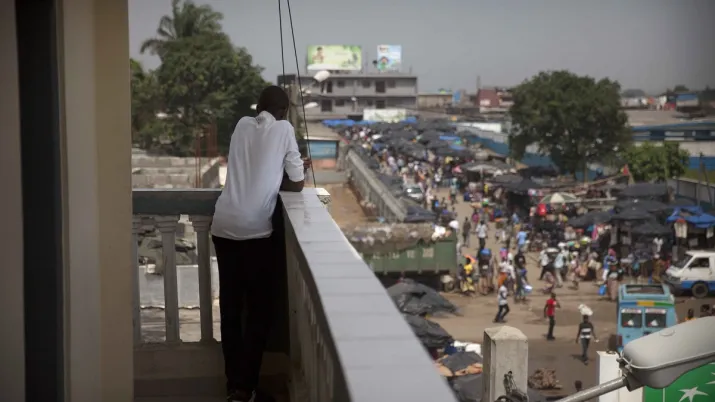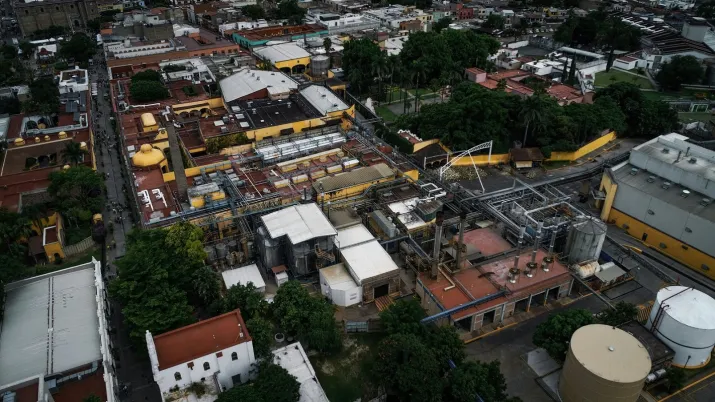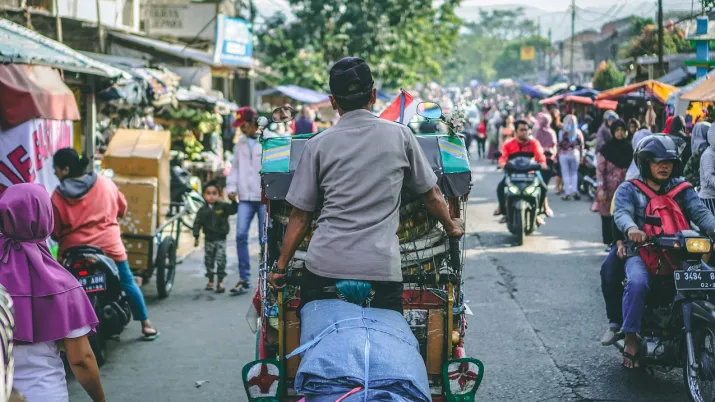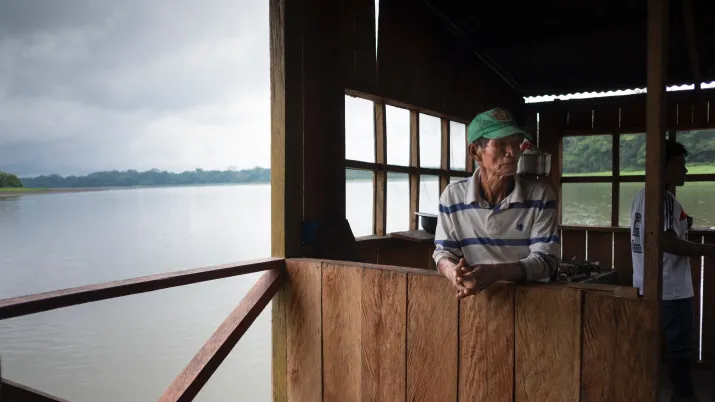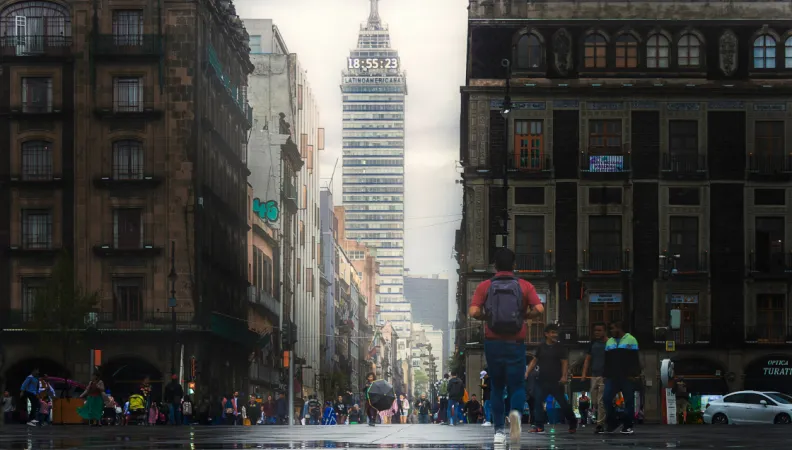 Mexico is one of the 60 countries followed by AFD’s country-risk economists, whose assessments shed light on countries' economic trajectory and macroeconomic and financial situation.
Mexico is one of the 60 countries followed by AFD’s country-risk economists, whose assessments shed light on countries' economic trajectory and macroeconomic and financial situation.
Context
The second largest economy in Latin America, Mexico is committed to the fight against climate change, environmental protection and the energy transition. Its objective is to halve its greenhouse gas emissions by 2050. The country is also rethinking its growth with the aim of making it more inclusive. AFD has been supporting Mexico in these efforts since 2009.
Goal
Produced by AFD's team of country-risk economists, macroeconomic country assessments provide an analysis of development processes in countries in which AFD operates. They also characterize their growth trajectory, and detect economic, social, political and financial vulnerabilities associated with these trajectories. AFD Group is thus in a position to properly measure the challenges and monitor the risks associated with each of its investments.
Emphasis is placed on developing countries, particularly in Africa, for which macroeconomic analyses are rare or infrequent. AFD seeks to complement existing production on the global economic situation, more focused on advanced economies and major emerging countries.
Find out more: Macroeconomic Analyses at AFD
Method
Country-risk analysis is based on a close follow-up over a long period of time and rooted in a fine knowledge of local contexts. Cyclical trends, often highlighted in the news, are always examined in the light of structural trends and of the regional context in which they take place. The aim is to highlight country-specific macroeconomic issues while assessing risks against comparable time- and space-based trajectories.
Country-risk economists place the study of socio-political vulnerabilities, the growth model, the viability of public debt, external balances and the soundness of the financial system at the heart of their assessment, and give specific attention to countries' exposure to climate risks.
Lessons learned
Mexico is always on the front line when it comes to benefiting or suffering as a result of economic or political changes in the USA. Trump’s rhetoric aggressively attacks Mexico over the issues of migration and drug trafficking, and accuses it of being a Trojan horse for Chinese imports. While Donald Trump’s previous term of office suggests that we should not overreact to his threats towards his neighbor, some consider him to be more determined in 2025 than in 2017. The United States is surely set to restart the “trade war”, sparing neither Europe nor Asia in view of the substantial bilateral trade deficits, and always based on a transactional approach. In a context conducive to nearshoring, Mexico could reap the benefits through its geo-economic rent.
Download our publications on the macroeconomic situation of Mexico:
- "Mexico: Gauging the “Trump 2.0” risk", in MacroDev Semestrial Panorama #61 (February 2025)
- "Mexico: Never-ending emergence", in MacroDev Semestrial Panorama #48 (July 2023)
Contact
-
Sylvain BELLEFONTAINE
Country Risk Economist
Discover other research projects
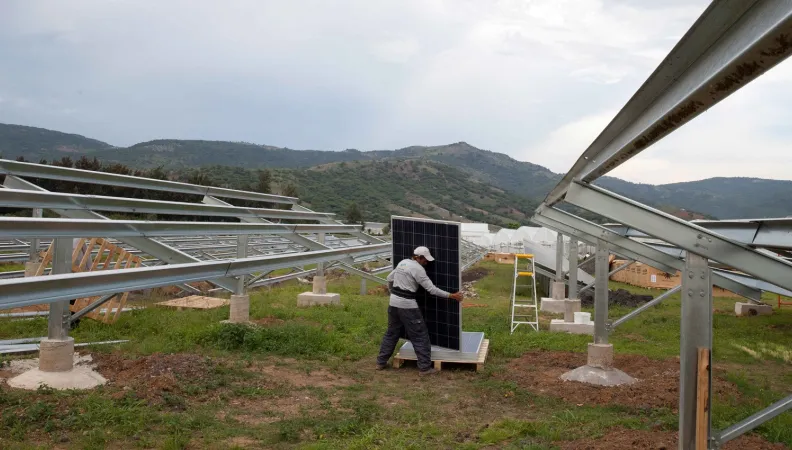 Legal notice EU (project) The energy transition is a challenge and a necessity for Mexico’s economic transformation. What role can socially owned renewables and energy cooperatives play in enhancing the livelihoods of the most vulnerable and in reducing inequality?
Legal notice EU (project) The energy transition is a challenge and a necessity for Mexico’s economic transformation. What role can socially owned renewables and energy cooperatives play in enhancing the livelihoods of the most vulnerable and in reducing inequality?
Context
The energy transition is a challenge and a necessity for Mexico’s economic transformation as, on the one hand, the country spends 7.6% of its GDP on fossil fuel subsidies and, on the other hand, in 2020 it was estimated that the economic impact of climate disaster increased by 202%. In order to achieve a successful energy transition and secure a sustainable growth path, Mexico needs to modernize its energy sector, reduce reliance on fossil fuels, and ensure sustainability. However, it is necessary to start from the territory, involving communities in the co-construction of resilience and the strengthening of local productive chains. Community and cooperative models play an essential role in promoting the creation of collective businesses managed in a democratic and solidarity-driven manner.
An example of just transition opportunities are energy cooperatives. They are a clear and promising model that involves local communities in the production, distribution and consumption of renewable energy, promoting decentralization and democratization of energy, especially in those territories historically and systematically excluded.
However, research conducted in Mexico during the first phase of the Research Facility on Inequalities showed low wealth sharing and limited social mobility in the country. In this context, it is necessary to address the just energy transition from an intergenerational social mobility approach and a social perspective to ensure benefits for the whole society.
This work is also part of AFD's dialogue with the Mexican authorities on options for diversifying the economy and reducing inequalities.
This project is part of the Extension of the EU-AFD Research Facility on Inequalities. Coordinated by AFD and financed by the European Commission, the Extension of the Facility will contribute to the development of public policies aimed at reducing inequalities in four countries: South Africa, Mexico, Colombia and Indonesia over the period 2021-2025.
Objectives
In partnership with the Centro de Estudios Espinosa Yglesias (CEEY) and in collaboration with the National Institute of the Social Economy (INAES), this research project aims to develop a conceptual and analytical research input for a better understanding of the role that renewable energy cooperatives can play in reducing inequality and increasing social mobility, and how they can be financed.
This input will:
- Conceptualise the just energy transition approach in the area of existing structural inequalities;
- Make a diagnosis from the perspective of intergenerational social mobility, as well as from the perspective of social and solidarity economy, and its relevance in the framework of just transitions, in order to establish identification criteria, social selection and prioritisation of projects;
- Use this diagnostic to propose criteria for the identification and selection of projects that prioritise the populations with the greatest disadvantages of origin (with the least space for social mobility), given the requirement of «no losers» of the just transition;
- Review and articulate technical issues related to decentralised energy and distributed generation, given their importance in the social economy in the just energy transition;
- Review the current INAES projects related to the subject in order, where appropriate, to guide the construction of identification and selection criteria.
Method
The research team will first conduct an exhaustive review of literature focused on environmental justice, climate justice, social mobility applied to environmental justice and intergenerational environmental justice. The literature will be analysed from the perspective of the energy transition and the intersection of these issues.
Based on this review of literature, researchers will develop a conceptual framework to understand the just energy transition in the field of current structural inequalities. It will also explain how this conceptual framework can be relevant for public policy decision-making.
The research team will also identify information gaps and research needs, with a special focus on the study of just energy transitions.
Research findings
You will find below the research paper related to this project: Just Energy Transition, Structural Inequities, and Social Mobility: The Case of Mexico
For further reading
Contact
-
Anda DAVID
Economist, scientific coordinator of the EU-AFD Research Facility on Inequalities

Discover more research projects in Mexico
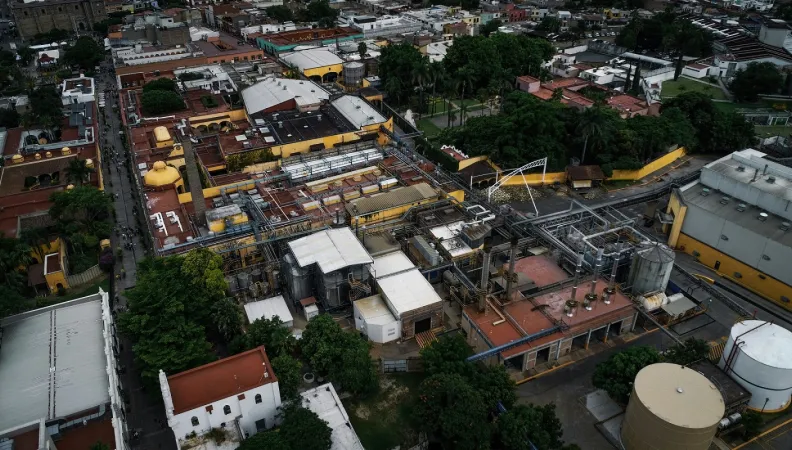 Legal notice EU (project) The phenomenon of relocation of value chains not only presents a set of challenges but also a unique opportunity to harmonise regional development throughout Mexico and to reduce inequalities. This research project, in partnership with Monterrey Institute of Technology and Higher Education, will examine this phenomenon in greater depth, focusing on the components of energy and human capital.
Legal notice EU (project) The phenomenon of relocation of value chains not only presents a set of challenges but also a unique opportunity to harmonise regional development throughout Mexico and to reduce inequalities. This research project, in partnership with Monterrey Institute of Technology and Higher Education, will examine this phenomenon in greater depth, focusing on the components of energy and human capital.
Context
Trade integration has been very beneficial for Latin America and the Caribbean (LAC) over the past 30 years. However, multiple crisis (the financial crisis of 2008, the Covid-19 pandemic, the climate crisis, etc.) have generated uncertainty about the future of the multilateral trading system. For example, the Covid-19 pandemic highlighted the fragility of certain value chains due to the vulnerability of a system in which factories are located at the other end of the world from where these goods are consumed. All this is leading to reconfigure global value chains, which tend to shorten, becoming less global and more regional – a phenomenon known as the “nearshoring model”. This new context creates an opportunity for LAC countries, and especially for Mexico, which identify themselves as the best alternative for the relocation of value chains under the nearshoring model.
Historically, the Mexican North-Central states have benefited most from the processes of integration into global value chains. This is natural, since it is where the manufacturing export base is located due to its proximity to the United States. On the other hand, the South-South-East of the country presents historical lags that make it significantly difficult to integrate it into global value chains and, therefore, to take advantage of change in the current international context.
In this regard, it is imperative to design strategies to take advantage of the opportunity presented by the nearshoring phenomenon, taking into account the particular problems of each region. This two-speed strategy is essential to define public policy interventions that can achieve more equitable regional development.
This project is part of the Extension of the EU-AFD Research Facility on Inequalities. Coordinated by AFD and financed by the European Commission, the Extension of the Facility will contribute to the development of public policies aimed at reducing inequalities in four countries: South Africa, Mexico, Colombia and Indonesia over the period 2021-2025.
This research project complements the work carried out by the Extension of the Research Facility on Inequalities in Mexico on the national care system and on the redistributive impact of environmental policies.
Objectives
This project aims to deepen the study of the phenomenon of relocation of global value chains to Mexico, recognising the challenges and opportunities it generates:
- First specific objective: To present a proposal to overcome one of the most critical bottlenecks identified by the productive sector, which is electricity generation. It is suggested to close the investment gap in electricity in the short term, through investment in distributed generation with solar panels, as well as exploring sustainable and equitable options, with a particular focus on the State of Nuevo León (North of the country).
- Second specific objective: To identify economic sectors with potential to benefit from the phenomenon of relocation of value chains and to address existing gaps in the formation of talent and human capital, emphasising social inclusion and gender equity. This will include a detailed analysis for the states of Oaxaca and Veracruz (South of the country), aiming to develop skills in emerging and traditional sectors, and prepare the workforce to take advantage of opportunities in the medium and long term.
- Third specific objective: To develop a strategic plan for the implementation of a portfolio of solutions based on the recommendations identified in the first and second specific objectives.
Method
- First specific objective: Scenario analysis will be used to measure the gap between demand and capacity for electricity generation. Solar distributed generation capacity scenarios will use Geographic Information Systems spatial analysis tools, while the estimates on the redirection of subsidies will be taken from official public sources.
- Second specific objective: Generated using a combination of international and national databases, economic metrics will serve to identify opportunities to boost productive diversification. A preliminary analysis will suggest industry clusters to prioritize. This will allow to select economic sectors with the potential to trigger industrial development, through interventions in the field of talent training. Talent gaps will then be identified through quantitative analysis. This cabinet analysis will be complemented with qualitative information (interviews, focus groups with key actors…).
- Third specific objective: The strategic plan will follow a mission-oriented policy approach, including a detailed action plan to be presented to the Mexican Federal Government. The plan will consist of a map of possible executing units within the federal, state and/or municipal governments, an analysis of the regulatory and institutional constraints that the plan could face, as well as strategic alternatives to overcome them.
Results
The project resulted in 3 research papers:
- Gaps in Human Capital and Labor Demand in Oaxaca
- Redesigning Electricity Subsidies for Distributed Generation in Mexico: A Fair Transition Model Applied to Nuevo León
- Institutional Implementation of In-Kind Subsidies for Distributed Generation: Multi-Level Governance and Policy Design in Nuevo León
For further reading
Contact
-
Anda DAVID
Economist, scientific coordinator of the EU-AFD Research Facility on Inequalities



